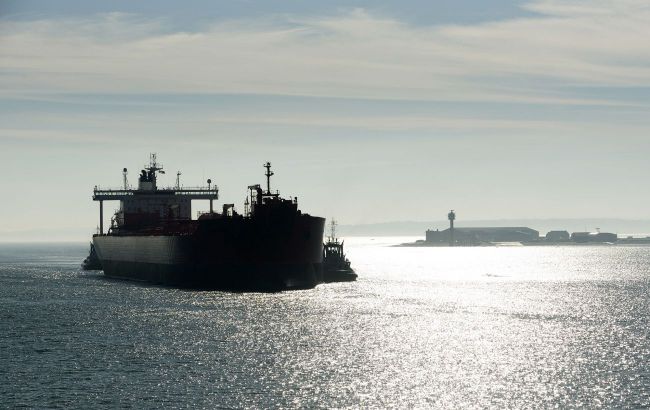Latvian companies service Russia's shadow fleet despite sanctions — Delfi
 Photo: Latvian companies serve Russia's shadow fleet (Getty Images)
Photo: Latvian companies serve Russia's shadow fleet (Getty Images)
Latvian companies continue to serve Russia's shadow fleet despite sanctions imposed by the European Union and its allies, Delfi reports.
The Zircone tanker, registered under the Cypriot flag and based in Latvia, is engaged in refueling ships. Most of its customers are ships from the Russian shadow fleet.
Last week, Zircone arrived at the port of Riga, presumably to purchase and load marine fuel. The ship moored at the oil product terminal of SIA Ovi, a company engaged in the wholesale trade of oil products.
Ovi representatives did not provide any information about their customers or the cargo being transshipped. However, publicly available ship databases show that during a short visit to the port of Riga, the Zircone tanker was inspected and found to have eight safety violations.
The Zircone and Rina are acting cautiously—they are refusing to service ships that are included in EU or US sanctions lists.
It is impossible to hold them accountable for violating other restrictions, as bunkering operations have been granted exceptional status, namely, exemption from a number of sanctions requirements. Both vessels operated for a long time under the brand of the Latvian company Fast Bunkering, registered in the territory of the Port of Riga.
After Russia's full-scale invasion of Ukraine, the company changed its name, address, and owners, presumably continuing its activities through other companies registered in Latvia.
According to experts, the shadow fleet has allowed Russia to earn about $25 billion in additional profits in two years, bypassing established price restrictions on oil and sanctions.
Russia's shadow fleet
Russia's shadow fleet has grown to enormous proportions. According to estimates, approximately one in 6 tankers in the world belongs to the shadow fleet. In total, this is about 17% of the total number of active tankers.
Most of these are old tankers that have exceeded their service life and operate under the flags of neutral countries. In addition to harming the environment and selling oil in circumvention of sanctions, old ships pose another threat.
In particular, it is believed that these tankers are used as platforms for hybrid attacks on Europe. This version has also been confirmed in Ukraine.

